Hyundai i30 vs Renault Mégane - Differences and prices compared
Compare performance (140 HP vs 218 HP), boot space and price (24000 £ vs 35100 £ ) at a glance. Find out which car is the better choice for you – Hyundai i30 or Renault Mégane?
Costs and Efficiency:
Looking at overall running costs, both models reveal some interesting differences in everyday economy.
Hyundai i30 has a convincingly advantage in terms of price – it starts at 24000 £ , while the Renault Mégane costs 35100 £ . That’s a price difference of around 11066 £.
Engine and Performance:
Power, torque and acceleration are the classic benchmarks for car enthusiasts – and here, some clear differences start to show.
When it comes to engine power, the Renault Mégane has a evident edge – offering 218 HP compared to 140 HP. That’s roughly 78 HP more horsepower.
In acceleration from 0 to 100 km/h, the Renault Mégane is noticeable quicker – completing the sprint in 7.40 s, while the Hyundai i30 takes 9.60 s. That’s about 2.20 s faster.
In terms of top speed, the Hyundai i30 performs to a small extent better – reaching 197 km/h, while the Renault Mégane tops out at 160 km/h. The difference is around 37 km/h.
There’s also a difference in torque: Renault Mégane pulls slightly stronger with 300 Nm compared to 253 Nm. That’s about 47 Nm difference.
Space and Everyday Use:
Whether family car or daily driver – which one offers more room, flexibility and comfort?
Both vehicles offer seating for 5 people.
In curb weight, Hyundai i30 is distinct lighter – 1291 kg compared to 1719 kg. The difference is around 428 kg.
In terms of boot space, the Hyundai i30 offers barely noticeable more room – 395 L compared to 389 L. That’s a difference of about 6 L.
In maximum load capacity, the Renault Mégane performs barely noticeable better – up to 1332 L, which is about 31 L more than the Hyundai i30.
When it comes to payload, Hyundai i30 a bit takes the win – 509 kg compared to 446 kg. That’s a difference of about 63 kg.
Who wins the race in the data check?
The Renault Mégane is clearly superior overall in the objective data comparison.
This result only shows which model scores more points on paper – not which of the two cars feels right for you.
Costs and Consumption
View detailed analysis
Engine and Performance
View detailed analysis
Dimensions and Body
View detailed analysis
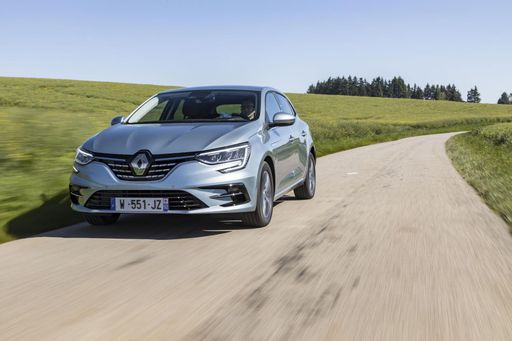
Renault Mégane
Hyundai i30
The Hyundai i30 proves that sensible can also be stylish, offering a confident driving character wrapped in neat, modern design. It serves up a roomy, well-equipped cabin and composed ride that make everyday motoring feel like a clever purchase rather than a compromise.
details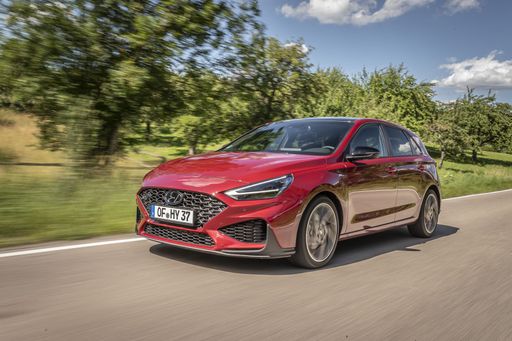
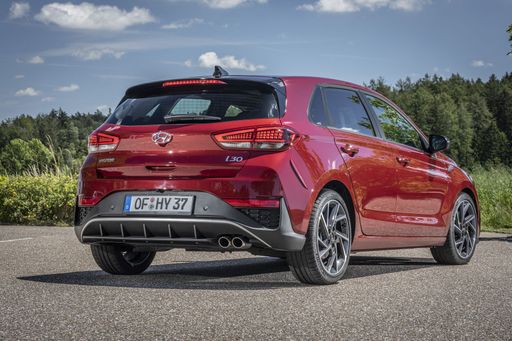
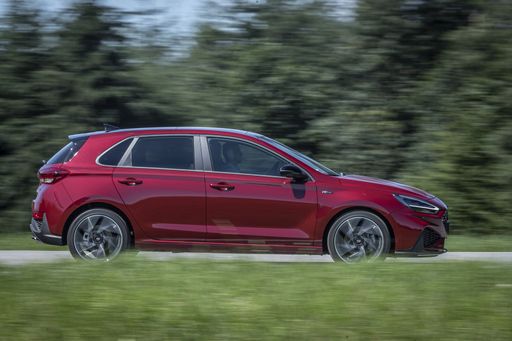
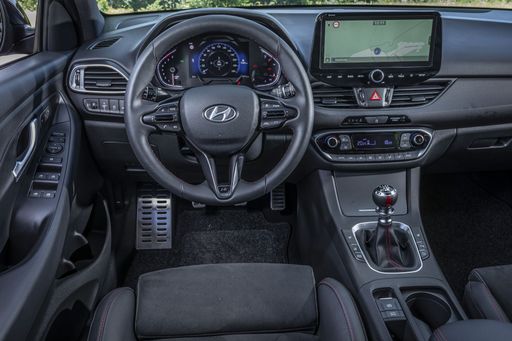
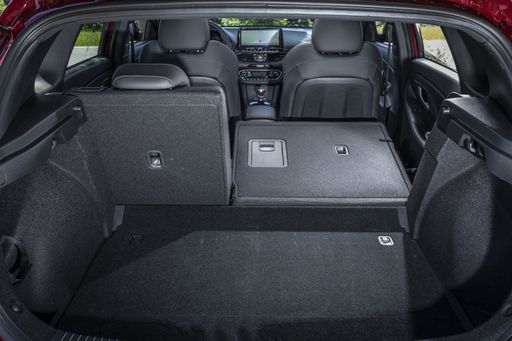
Renault Mégane
The Renault Mégane blends Gallic flair with practical everyday charm, showing that sensible transport can still have personality and poise. It’s a smart pick for buyers who want a comfortable, stylish hatchback that feels a little more special than the usual commute companion.
details
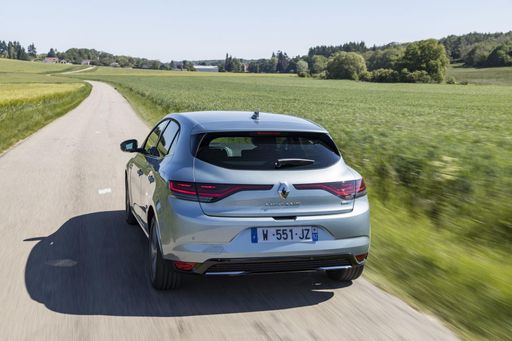
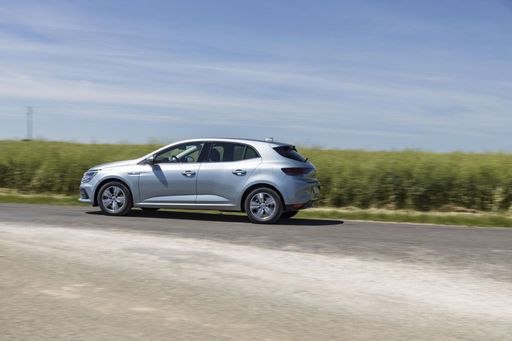
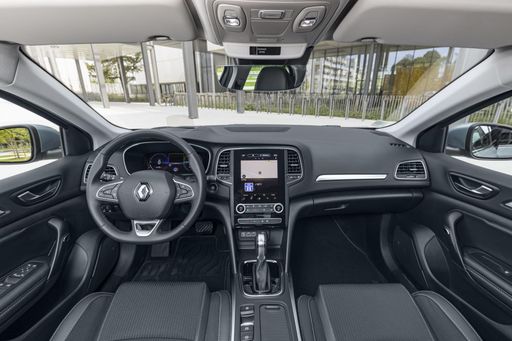
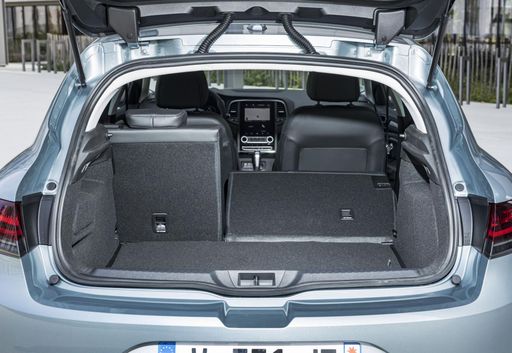
Costs and Consumption |
|
|---|---|
|
Price
24000 - 29300 £
|
Price
35100 - 38500 £
|
|
Consumption L/100km
5.7 - 6 L
|
Consumption L/100km
-
|
|
Consumption kWh/100km
-
|
Consumption kWh/100km
15.40 kWh
|
|
Electric Range
-
|
Electric Range
452 km
|
|
Battery Capacity
-
|
Battery Capacity
-
|
|
co2
130 - 136 g/km
|
co2
0 g/km
|
|
Fuel tank capacity
50 L
|
Fuel tank capacity
-
|
Dimensions and Body |
|
|---|---|
|
Body Type
Hatchback
|
Body Type
SUV
|
|
Seats
5
|
Seats
5
|
|
Doors
5
|
Doors
5
|
|
Curb weight
1291 - 1407 kg
|
Curb weight
1719 kg
|
|
Trunk capacity
395 L
|
Trunk capacity
389 L
|
|
Length
4340 mm
|
Length
4200 mm
|
|
Width
1795 mm
|
Width
1783 mm
|
|
Height
1455 mm
|
Height
1505 mm
|
|
Max trunk capacity
1301 L
|
Max trunk capacity
1332 L
|
|
Payload
463 - 509 kg
|
Payload
446 kg
|
Engine and Performance |
|
|---|---|
|
Engine Type
Petrol, Petrol MHEV
|
Engine Type
Electric
|
|
Transmission
Manuel, Automatic
|
Transmission
Automatic
|
|
Transmission Detail
Manual Gearbox, Dual-Clutch Automatic
|
Transmission Detail
Reduction Gearbox
|
|
Drive Type
Front-Wheel Drive
|
Drive Type
Front-Wheel Drive
|
|
Power HP
100 - 140 HP
|
Power HP
218 HP
|
|
Acceleration 0-100km/h
9.6 - 13.1 s
|
Acceleration 0-100km/h
7.40 s
|
|
Max Speed
178 - 197 km/h
|
Max Speed
160 km/h
|
|
Torque
172 - 253 Nm
|
Torque
300 Nm
|
|
Number of Cylinders
3 - 4
|
Number of Cylinders
-
|
|
Power kW
74 - 103 kW
|
Power kW
160 kW
|
|
Engine capacity
998 - 1482 cm3
|
Engine capacity
-
|
General |
|
|---|---|
|
Model Year
2024
|
Model Year
2025
|
|
CO2 Efficiency Class
D, E
|
CO2 Efficiency Class
A
|
|
Brand
Hyundai
|
Brand
Renault
|
What drive types are available for the Hyundai i30?
Available configurations include Front-Wheel Drive.
